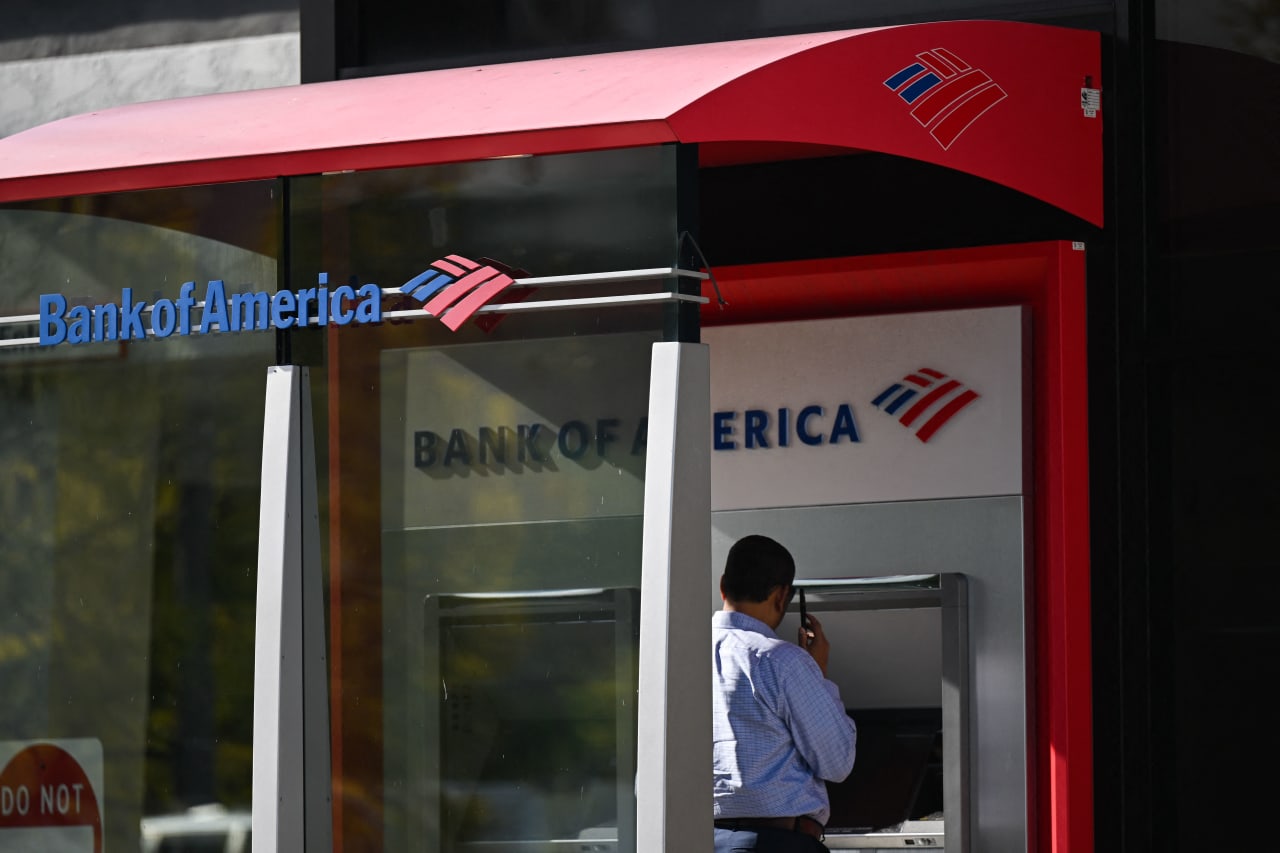Buyer’s regret: the purchases we wish we hadn’t made are on the rise
New data shows more Australians are having second thoughts about racking up certain kinds of debt
One in two credit card holders regret a purchasing decision they’ve made using plastic, with Australians racking up a record $34 billion on their cards per month.
Research by Finder found 52 percent of Australians have felt buyer’s remorse, with the top categories of rued expenditure being clothes, shoes and accessories (12 percent), gambling products and services (8 percent), other expenses (6 percent), holidays (5 percent) and entertainment including concerts and sports events (5 percent).
The findings come amid a cost-of-living crisis caused by the highest inflation rate in decades and the highest official interest rates since 2012. Consumers are tightening their belts, with the latest retail trade figures showing turnover is still rising but at the slowest annual pace in 40 years, as we begin to see the typical lagged impact on household budgets of 12 interest rate rises since May last year. The retail data from the Australian Bureau of Statistics shows people are restricting their spending on household goods but are still happy to pay for meals and drinks at cafes and restaurants.
“Considering how high inflation and strong population growth has added to retail turnover in the past year, the historically low trend growth highlights just how much consumers have pulled back in response to cost-of-living pressures,” said ABS head of retail statistics, Ben Dorber. Other ABS data shows household savings ratios have fallen to their lowest level since 2008, with Australians having now depleted record savings amassed during the pandemic due to stimulus payments and periods of lockdown.
Latest figures published by the Reserve Bank of Australia revealed consumers spent a record $34.4 billion on their credit cards in August, up 6.8 percent on the same time last year. The Finder research showed Australians charge an average of $2,584 on their credit cards per month.
Finder’s credit card expert, Amy Bradney-George, said Australians should focus on their long-term patterns of spending rather than one bad purchase. “Millions have experienced buyer’s remorse, but the repercussions could be far reaching if these regrettable purchases become a habit. Many of us have bought something without considering our household budget, but with the rising cost of living, a bad buy now can hurt more than it might have a few years ago.”
Bradney-George said impulse buys or other unplanned purchases “can wreak havoc on your finances, especially if you don’t pay your credit card off in full each month.” She advised consumers to “sleep on it” to avoid impulse spending. “If you still want the item 24 hours later, it can be easier to justify and manage the cost.” She points out that some credit card issuers allow consumers to set spending limits or blocks on certain types of transactions, which could help reduce temptation.
It is crucial that consumers pay off their credit cards in full every month, said Bradney-George. “This could mean timing repayments to match up with your payday, setting up automatic payments through your credit card account or putting reminders in your calendar. If consumers are struggling with credit card debt, it might be time to shop around for a 0% balance transfer deal which will allow them to pay off their debt without drowning in extra interest charges.”
This stylish family home combines a classic palette and finishes with a flexible floorplan
Just 55 minutes from Sydney, make this your creative getaway located in the majestic Hawkesbury region.
When will Berkshire Hathaway stop selling Bank of America stock?
Berkshire began liquidating its big stake in the banking company in mid-July—and has already unloaded about 15% of its interest. The selling has been fairly aggressive and has totaled about $6 billion. (Berkshire still holds 883 million shares, an 11.3% interest worth $35 billion based on its most recent filing on Aug. 30.)
The selling has prompted speculation about when CEO Warren Buffett, who oversees Berkshire’s $300 billion equity portfolio, will stop. The sales have depressed Bank of America stock, which has underperformed peers since Berkshire began its sell program. The stock closed down 0.9% Thursday at $40.14.
It’s possible that Berkshire will stop selling when the stake drops to 700 million shares. Taxes and history would be the reasons why.
Berkshire accumulated its Bank of America stake in two stages—and at vastly different prices. Berkshire’s initial stake came in 2017 , when it swapped $5 billion of Bank of America preferred stock for 700 million shares of common stock via warrants it received as part of the original preferred investment in 2011.
Berkshire got a sweet deal in that 2011 transaction. At the time, Bank of America was looking for a Buffett imprimatur—and the bank’s stock price was weak and under $10 a share.
Berkshire paid about $7 a share for that initial stake of 700 million common shares. The rest of the Berkshire stake, more than 300 million shares, was mostly purchased in 2018 at around $30 a share.
With Bank of America stock currently trading around $40, Berkshire faces a high tax burden from selling shares from the original stake of 700 million shares, given the low cost basis, and a much lighter tax hit from unloading the rest. Berkshire is subject to corporate taxes—an estimated 25% including local taxes—on gains on any sales of stock. The tax bite is stark.
Berkshire might own $2 to $3 a share in taxes on sales of high-cost stock and $8 a share on low-cost stock purchased for $7 a share.
New York tax expert Robert Willens says corporations, like individuals, can specify the particular lots when they sell stock with multiple cost levels.
“If stock is held in the custody of a broker, an adequate identification is made if the taxpayer specifies to the broker having custody of the stock the particular stock to be sold and, within a reasonable time thereafter, confirmation of such specification is set forth in a written document from the broker,” Willens told Barron’s in an email.
He assumes that Berkshire will identify the high-cost Bank of America stock for the recent sales to minimize its tax liability.
If sellers don’t specify, they generally are subject to “first in, first out,” or FIFO, accounting, meaning that the stock bought first would be subject to any tax on gains.
Buffett tends to be tax-averse—and that may prompt him to keep the original stake of 700 million shares. He could also mull any loyalty he may feel toward Bank of America CEO Brian Moynihan , whom Buffett has praised in the past.
Another reason for Berkshire to hold Bank of America is that it’s the company’s only big equity holding among traditional banks after selling shares of U.S. Bancorp , Bank of New York Mellon , JPMorgan Chase , and Wells Fargo in recent years.
Buffett, however, often eliminates stock holdings after he begins selling them down, as he did with the other bank stocks. Berkshire does retain a smaller stake of about $3 billion in Citigroup.
There could be a new filing on sales of Bank of America stock by Berkshire on Thursday evening. It has been three business days since the last one.
Berkshire must file within two business days of any sales of Bank of America stock since it owns more than 10%. The conglomerate will need to get its stake under about 777 million shares, about 100 million below the current level, before it can avoid the two-day filing rule.
It should be said that taxes haven’t deterred Buffett from selling over half of Berkshire’s stake in Apple this year—an estimated $85 billion or more of stock. Barron’s has estimated that Berkshire may owe $15 billion on the bulk of the sales that occurred in the second quarter.
Berkshire now holds 400 million shares of Apple and Barron’s has argued that Buffett may be finished reducing the Apple stake at that round number, which is the same number of shares that Berkshire has held in Coca-Cola for more than two decades.
Buffett may like round numbers—and 700 million could be just the right figure for Bank of America.
This stylish family home combines a classic palette and finishes with a flexible floorplan
Just 55 minutes from Sydney, make this your creative getaway located in the majestic Hawkesbury region.


















